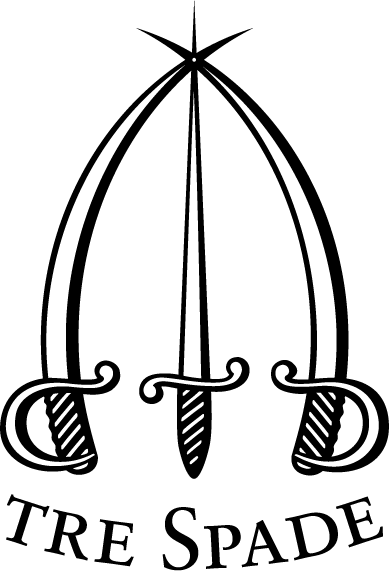Whistleblowing
The official version of this text is in Italian. In case of discrepancies, the Italian text shall prevail. FACEM S.p.A. shall not be held responsible for incomplete or incorrect translations into other languages of these instructions.
Learn how to report a matter of general public concern in the workplace.
Access the service
Please note:
-
One single channel must be used to submit the report/communication and for any subsequent additions;
-
Use of the online platform is the preferred method;
-
Duplicate reports of the same issue should not be submitted.
1. New Provisions Introduced by Legislative Decree No. 24/2023
What Changes Under the New Law
In implementation of Directive (EU) 2019/1937, Legislative Decree No. 24 of March 10, 2023, was issued regarding “the protection of persons who report breaches of Union law and containing provisions regarding the protection of persons who report breaches of national legislation.”
The decree came into effect on March 30, 2023, and its provisions have been enforceable since July 15, 2023.
- The decree applies to entities in both the public and private sectors; with particular reference to the latter, the regulation extends protections to whistleblowers employed, on average, over the past year with at least fifty subordinate employees, or, even below this threshold, to entities operating in so-called sensitive sectors (financial services, products and markets, prevention of money laundering or terrorist financing, transport security, and environmental protection), as well as to those adopting organizational and management models pursuant to Legislative Decree 231/2001.
- Only for private sector entities that have employed, on average over the past year, up to two hundred forty-nine subordinate workers under permanent or fixed-term contracts, the obligation to establish an internal reporting channel takes effect from December 17, 2023.
- Until that date, such private entities that have adopted, or intend to adopt, the 231 model shall continue to manage internal reporting channels as provided under Legislative Decree 231/2001.
2. Entities Subject to the Regulations
Private Sector
The whistleblower protection measures under Legislative Decree No. 24/2023 require private sector entities to establish reporting channels if they meet at least one of the following conditions:
-
They employed an average of at least 50 employees in the previous year (permanent or fixed-term contracts);
-
They operate in specific sectors (financial services, products and markets, AML/CFT, transportation safety, environmental protection), even without having met the 50-employee threshold;
-
They have adopted organizational and management models as per Legislative Decree 231/2001, even without meeting the 50-employee threshold.
Public Sector
The obligation to establish internal reporting channels also applies to the following public sector bodies:
-
Public administrations as defined in Article 1, paragraph 2 of Legislative Decree No. 165 of March 30, 2001;
-
Independent administrative authorities for oversight, regulation, or enforcement;
-
Public economic entities and public law bodies under Article 3, paragraph 1, letter d) of Legislative Decree No. 50 of April 18, 2016;
-
Public service concessionaires, publicly controlled companies, and in-house companies as defined respectively under Article 2, paragraph 1, letters m) and o) of Legislative Decree No. 175 of August 19, 2016—even if publicly traded.
3. What Can Be Reported
Actions, omissions, or behaviors that harm the public interest or the integrity of a public administration or private entity, including:
-
Administrative, accounting, civil, or criminal offenses;
-
Relevant misconduct under Legislative Decree 231/2001 or violations of related organizational and management models;
-
Breaches covered by EU or national regulations in the following areas: public procurement; financial services, products and markets; AML/CFT; product safety and compliance; transportation safety; environmental protection; radiation and nuclear safety; food and feed safety and animal health/welfare; public health; consumer protection; privacy and data protection; cybersecurity and information systems;
-
Actions or omissions harming the EU's financial interests;
-
Actions or omissions affecting the internal market;
-
Acts or conduct that undermine the intent or purpose of EU law.
4. Choice of Reporting Channels
-
Internal (within the work context);
-
External (to ANAC);
-
Public disclosure (via media, digital platforms, or broad communication channels);
-
Report to judicial or accounting authorities.
Internal Reporting Channel
Reports to the Company’s Whistleblowing Manager may be submitted:
-
By mail (standard or certified), marked “To the attention of the Whistleblowing Manager – confidential and personal,” sent to the company’s registered office;
-
In person, in a sealed envelope addressed similarly and delivered to the registered office;
-
Online, via the digital platform “My Whistleblowing,” accessible at:
https://areariservata.mygovernance.it/#!/WB/FACEM
Reports can be submitted, received, and tracked electronically using the platform. After submitting a report, the whistleblower will receive email updates and must follow instructions to create a platform account to monitor the case or engage in further communication.
The platform automatically notifies the designated Whistleblowing Manager.
Only through the platform—with credentials previously created—can the whistleblower monitor the investigation status.
Alternatively, and upon justified request, reports may also be submitted via a direct meeting, arranged within a reasonable timeframe, using the procedure outlined at https://www.trespade.it/whistleblowing.
The platform ensures confidentiality of:
-
The whistleblower;
-
Any facilitator;
-
Involved or mentioned parties;
-
Report contents and documentation.
The reporting platform guarantees protection against any conflicts of interest involving the designated report managers identified by the company, allowing the whistleblower, at the time of reporting, to direct the report to a “backup manager.” The backup manager will intervene in the management of the report autonomously and exclusively, in order to preliminarily limit the scope of the report and undertake the necessary precautions. This process may also be initiated independently by the manager themselves if a potential conflict of interest arises.
The management of the reporting channels is entrusted to:
-
a person specifically trained for the management of the reporting channel, identified as Giansalvatore Algieri, belonging to the HR office function;
-
a person specifically trained for the management of the reporting channel, identified as Cristina Gentile, belonging to the Administration/Finance office function;
-
a person specifically trained for the management of the reporting channel, identified as Giuseppe Giovannini, belonging to the ICT office function (backup manager).
External Reporting Channel (ANAC)
Whistleblowers may contact ANAC if:
-
The internal channel is not required, not active, or non-compliant;
-
An internal report was already made with no follow-up;
-
There are reasonable grounds to believe the report would not be acted upon or may trigger retaliation;
-
The reported violation poses an imminent or evident danger to the public interest.
Public Disclosure
Direct public disclosure may occur when:
-
Internal and external reports have not been addressed in due time;
-
There is reasonable belief that the violation poses imminent or evident danger to the public;
-
There is reasonable concern that an external report may result in retaliation or be ineffective, for example if evidence may be destroyed or the recipient may be complicit.
5. Conditions for Reporting
Reasonableness
At the time of reporting, whistleblowers must reasonably believe that the disclosed information is true and falls within the scope of the law.
Method
Reports must be submitted using the appropriate channels (internal, external, or public) in line with the criteria described in Section 4.
6. Evaluation of Public Interest vs. Personal Interest
Reports must serve:
-
The public interest;
-
The integrity of public or private organizations.
The whistleblower’s personal motivations are irrelevant to their protection.
7. What Happens After a Report?
F.A.C.E.M. S.p.A. will:
-
Acknowledge receipt of the report within 7 days, unless this would breach confidentiality or the whistleblower requests otherwise;
-
Communicate with the whistleblower and request additional information if necessary;
-
Diligently follow up on all reports;
-
Conduct necessary investigations, including hearings and documentation review;
-
Provide feedback within 3 months of acknowledgment (or within 3 months from submission if no acknowledgment was issued);
-
Notify the whistleblower of the final outcome.
8. Protection of Whistleblower Confidentiality
-
The whistleblower’s identity is confidential and disclosed only to those handling the report;
-
Any identifying elements are also protected, including indirect ones;
-
Reports are exempt from public records requests and freedom of information access;
-
Confidentiality also extends to individuals named or involved in the report, until investigations are concluded.
9. Compliance with Data Protection Law
- The processing of personal data related to the receipt and management of reports is carried out by Fabbricazione Articoli Casalinghi E Metallurgici F.A.C.E.M. S.p.A., as the data controller, in compliance with European and national principles on personal data protection, providing adequate information to the whistleblowers and to the individuals involved in the reports, as well as adopting appropriate measures to safeguard the rights and freedoms of the data subjects.
- Furthermore, the rights under Articles 15 to 22 of Regulation (EU) 2016/679 may be exercised within the limits set forth by Article 2-undecies of Legislative Decree No. 196 of June 30, 2003.
- Internal and external reports and the related documentation are retained for the time necessary to process the report and, in any case, no longer than 5 years from the date of communication of the final outcome of the reporting procedure, in compliance with confidentiality obligations under European and national personal data protection laws.
The complete information regarding the processing of personal data is accessible as follows:
-
Whistleblower Information Notice (Art. 13 Regulation (EU) 2016/679)
-
Information Notice to Involved Persons (Art. 14 Regulation (EU) 2016/679)
10. Retaliation
“Retaliation” means any conduct, act, or omission — including those merely attempted or threatened — carried out as a result of a report, a complaint to the judicial or accounting authority, or a public disclosure, and which causes or may cause the reporting person or the person who made the complaint an unjust harm, directly or indirectly.
Examples of retaliatory conduct:
-
dismissal, suspension, or equivalent measures;
-
demotion or failure to promote;
-
change in duties, change of workplace, reduction in salary, modification of working hours;
-
suspension of training or any restriction of access to it;
-
negative performance assessments or negative references;
-
disciplinary measures or other sanctions, including monetary penalties;
-
coercion, intimidation, harassment, or ostracism;
-
discrimination or otherwise unfavorable treatment;
-
failure to convert a fixed-term employment contract into a permanent one, where the worker had a legitimate expectation of such conversion;
-
non-renewal or early termination of a fixed-term employment contract;
-
damage, including to the person's reputation — particularly on social media — or economic or financial harm, including loss of economic opportunities and loss of income;
-
blacklisting on the basis of a formal or informal sectoral or industry agreement, which may result in the person being unable to find employment in the sector or industry in the future;
-
early termination or cancellation of a contract for the supply of goods or services;
-
cancellation of a license or permit;
-
requirement to undergo psychiatric or medical examinations.
10.1 Authority Responsible for Determining Retaliation
The management of communications regarding retaliation in the public and private sectors falls under the jurisdiction of ANAC (National Anti-Corruption Authority), which may make use, within their respective areas of competence, of the collaboration of:
-
the Public Administration Inspectorate, and
-
the National Labour Inspectorate.
The declaration of nullity of retaliatory acts is the responsibility of the Judicial Authority.
10.2 Proof of Retaliation
ANAC must determine whether the conduct (act or omission) considered retaliatory is a consequence of the report, complaint, or public disclosure.
Once the whistleblower proves that:
-
they made a report in accordance with the applicable law, and
-
they suffered conduct considered retaliatory,
the burden of proof shifts to the employer, who must prove that the conduct is in no way related to the report.
Since this is a presumption of liability, evidence to the contrary must be produced in the adversarial process before ANAC. To this end, it is essential that the presumed responsible party provide all elements from which the non-retaliatory nature of the action taken against the whistleblower can be inferred.
10.3 Protection from Retaliation Extended to Other Persons
Protection from retaliation is extended to subjects other than the whistleblower:
-
to the facilitator (a natural person who assists the whistleblower in the reporting process and operates within the same work environment);
-
to persons within the same work environment as the whistleblower, the person who filed a complaint, or the person who made a public disclosure, who are bound to them by a stable emotional or kinship relationship up to the fourth degree;
-
to colleagues of the whistleblower or the person who filed a complaint or made a public disclosure, who work in the same work environment and have a habitual and ongoing relationship with said person;
-
to entities owned by the whistleblower or for which such persons work, as well as entities operating within the same work environment as the aforementioned persons.
11. Protection of Whistleblowers
11.1 Non-Punishability of Whistleblowers
A person is not punishable who discloses or disseminates information about violations:
-
covered by confidentiality obligations, except for professional legal or medical secrecy;
-
concerning copyright protection;
-
relating to personal data protection, provided that, at the time of the report, complaint, or disclosure, the person had reasonable grounds to believe the disclosure was necessary for the report, and that it was made in accordance with legal procedures.
11.2 Loss of Protection
Protection is not guaranteed when the whistleblower is found responsible, even by a first-instance court ruling, for criminal offenses of defamation or slander, or in any case for the same offenses committed through the report to the judicial or accounting authority, or for civil liability for the same conduct, in cases of intent or gross negligence; in such cases, the whistleblower or complainant may be subject to a disciplinary sanction.
11.3 Support Measures for Whistleblowers
-
Support measures are provided consisting of free information, assistance, and advice regarding the procedures for reporting, the protection from retaliation offered by national and European Union legislation, the rights of the person involved, as well as the methods and conditions for accessing State-sponsored legal aid.
-
A register of Third Sector entities that provide support measures to whistleblowers is maintained by ANAC. The register, published on ANAC’s website, includes Third Sector entities that, pursuant to their respective bylaws, carry out the activities referred to in Legislative Decree No. 117 of July 3, 2017, and have entered into agreements with ANAC.


